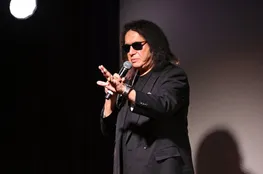Charlie Kirk's latest commentary has ignited controversy as he linked anti-ICE demonstrations in California to a deeply concerning theory – the "Great Replacement" – alleging a deliberate effort to supplant white Americans with immigrants. During his Monday podcast, Kirk expressed vehement opposition to the protesters, labeling them as hostile towards "Christendom," "Western civilization," and the values he perceives as foundational to the United States. He characterized the movement as driven by "freaks," highlighting his call for President Donald Trump to deploy military forces into Los Angeles, urging immediate action to prevent a repeat of what he termed "Floyd-a-Paloosas." Kirk’s rhetoric directly referenced the "Great Replacement Theory," asserting that the protests represent a calculated attempt to replace white Anglo-Saxon Christian Protestants with individuals from countries like Mexico, Nicaragua, and El Salvador. He pointed to demographic shifts in California, noting that one in four residents were born outside the U.S., and cited the decline of the white population in Los Angeles as evidence of this intentional displacement. Kirk’s argument is further underpinned by a selective interpretation of scripture, referencing the biblical book of Nehemiah to justify a strong border wall and a policy of exclusion for those he deems "agents of disorder, chaos, and confusion." He envisioned a forceful repatriation of "20, 25, 30 million" individuals, framing the situation as a matter of national identity and security. This perspective, rooted in a particular interpretation of biblical passages, has been widely criticized as promoting xenophobia and potentially inciting violence.
The core of Kirk’s argument centers on the idea that demographic changes are not natural but rather a deliberate plot, fueled by a desire to dismantle American culture and values. Critics argue that this narrative is based on misinformation and conspiracy theories, exploiting anxieties about immigration and cultural shifts. The invocation of Nehemiah, a biblical figure known for rebuilding Jerusalem after its destruction, underscores the urgency and perceived righteousness of Kirk’s stance. However, this interpretation is contested, with many arguing that Nehemiah’s actions were driven by a desire for security and stability, not exclusion. The overall message is a call to action, urging a forceful response to what Kirk perceives as a threat to American identity and values. This viewpoint has drawn considerable attention, sparking debate about immigration, national identity, and the role of religious interpretations in contemporary political discourse. The implications of Kirk’s statements extend beyond the immediate protests, raising broader concerns about the spread of extremist ideologies and the potential for their influence on public policy. Understanding the context surrounding these claims, including the historical roots of the "Great Replacement Theory" and the ongoing debates about immigration policy, is crucial for a comprehensive analysis of this complex situation. The situation highlights the challenges of navigating diverse perspectives and the importance of critical engagement with information, particularly when it is presented within a politically charged environment.
























